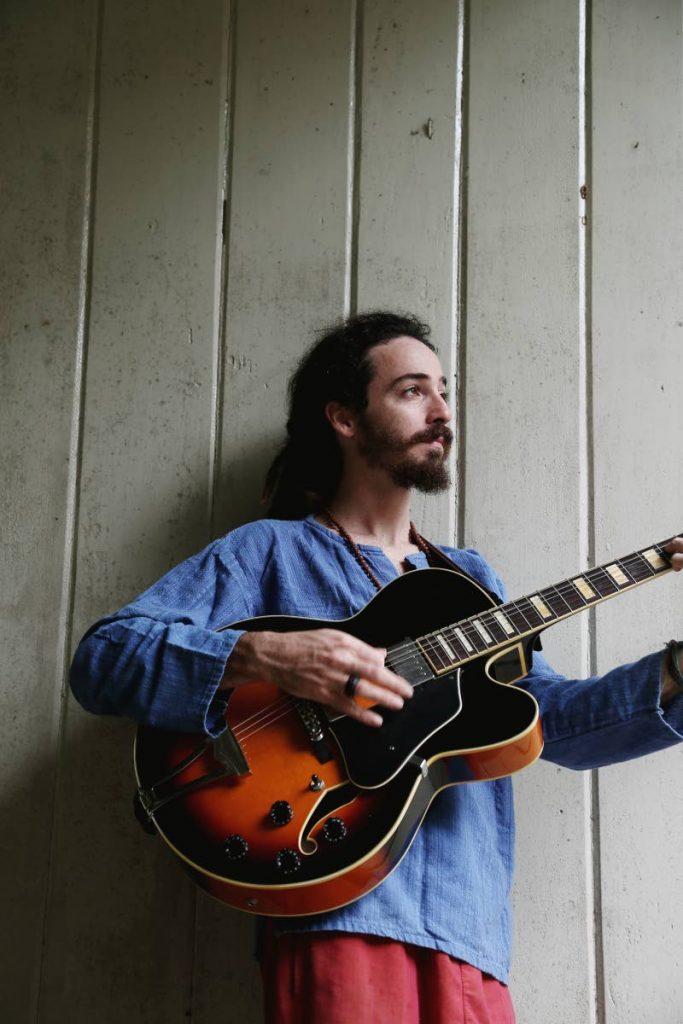TT music can drum up exports, profits

kmmpub@gmail.com
You can go to the most remote mountain or the farthest waterfall in our islands. Before long it is inevitable that you’ll hear a beat: “Dun duh duh…”. What if that beat can be harnessed to drive our economy?
In 2013, Government estimated the overall size of our largely domestic music industry at just US$25 million, employing some 5,600 people. Almost 91 per cent of that revenue was directly related to Carnival.
The industry is polarised. Aside from a couple of artistes at the top (think Machel Montano or Kees Dieffenthaller), very few are plugged in to the international framework that enables music to generate cash. The only income that most musicians see is from local live performances.
Publishing rights are poorly enforced. Musicians have few people to turn to if they want to monetise their music by, for example licensing it for an advertisement.
Few artistes can access the broader ecosystem – populated by producers, songwriters, managers, agents and digital media specialists – that makes music a viable career globally. Most find the business of music “mysterious” and release music on an ad-hoc basis.
I spoke with Richard Solis (Solman), who makes infectious folk-inspired songs that tap a millennial affinity for nature and spirituality. For him, while there are many talented people in TT, it can be tough to tap into that business ecosystem outside of Carnival.
His cousin Christopher St Hilaire is a TT-born musician living in New York. Last year alone he toured 20 countries, opening for Paul McCartney and the Who (I’ll leave his groupie stories for another time…), but he’s lived his share of musical struggle. He stresses collaboration, but also points out that many musicians also subconsciously take pride in ignoring business. To tackle this, he has formed an advocacy group which works with the City of New York to educate artistes on the basics of the music business.
Demand is there. The global music industry arrested a decade-long slump in 2014, and since then has been growing briskly. In 2019 alone the industry grew by 9.7 per cent, driven by two main trends.
The first is streaming, which now accounts for 47 per cent of industry revenue, according to the IFPI (the International Federation of the Phonographic Industry – the main industry body).
The second is performance rights: which have grown from a mere 2.5 per cent of the industry to more than 14 per cent since 2001. Bunji Garlin's Truck on the Road featured in the trailer for Fast & Furious 8. Famalay (Bunji, Montano, Skinny Fabulous) plays at NBA games.

I spoke with the brothers Shyamal and Keshav Chandradath Singh. Shyamal is vice-president of InvesTT, who co-owns a music label – Kin Studios – while his brother Keshav is a producer and musician who as part of the duo Jus’ Now has performed at some of the biggest festivals and clubs internationally, as well as producing several local hits.
The brothers say that the quickest way the State can help is to identify five to ten artistes with proven potential to attract an international audience, and book TT slots for the next five years in all the major festivals: Coachella, Boomtown, Glastonbury, Burning Man.
Scenes don’t happen overnight. Trap music took ten years to build up. But we have an advantage: we are a relatively undiscovered sound – every hipster loves that.
We can tap lucrative markets like Nigeria, Brazil and South Africa, where there is already demand for music not dissimilar from ours; not to mention our already engaged diaspora.
Although the music industry has never been more competitive, it has also never been more accessible. The days when Bob Marley waited to be “discovered” by record executive Christopher Blackwell are long gone. An up-and-coming musician can quickly release on streaming services like Spotify or Apple Music.
The key is consistency of content and brand. The approach in today’s industry is constant releases, backed up with videos and a lifestyle and content push across Instagram, TikTok and other social media. Shyamal and Keshav’s advice to young musicians is to “look at everything you are releasing as a project. Have a theme. Have a specific brand identity.”
Most of all, creative collaboration has never been more necessary to engage audiences. We can even see it in the sound of soca over time as it has become more melodic and influenced by electronic dance music.
Music won’t replace oil and gas any time soon. But it requires little capital and is cheaply exported. TT can leverage the comparative advantage of our rich cultural history to capture a healthy slice of the US$57 billion global music market. Dun, duh duh, dun duh duh…
Kiran Mathur Mohammed is a social entrepreneur, economist and businessman. He is a former banker, and a graduate of the University of Edinburgh

Comments
"TT music can drum up exports, profits"